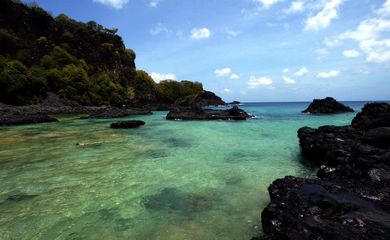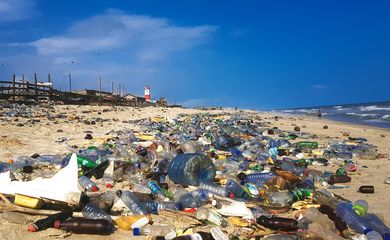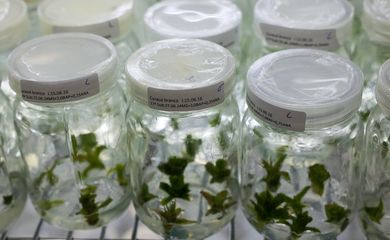Brazil dumps 1.3M tons of plastic into the ocean every year

Brazil ranks eighth among the world’s biggest polluters when it comes to dumping plastic in the ocean—and first in Latin America. The nation dumps 1.3 million tons of plastic every year, a report by NGO Oceana says. The volume represents eight percent of this type of pollution on the planet.

Oceanologist and Oceana General Director Ademilson Zamboni said the study was designed as a tool to measure the problem of plastic pollution in Brazil and is expected to spur a transition that overcomes the environmental, economic, and social challenges caused by the current model.
“The plastic that pollutes our seas gets there because of a production and disposal model that needs to be replaced urgently,” he pointed out.
The impact of this pollution on ecosystems and even on human nutrition was observed by the researchers, who found plastic ingestion in 200 marine species, 85 percent of which are at risk of extinction. Of these animals, one in 10 specimens died as a result of problems such as malnutrition and reduced immunity after exposure to chemical compounds harmful to the species, the text reads.
Using the databases of the Beach Monitoring Projects for the Santos and Campos basins, which analyzed the stomach contents of 12,280 birds, reptiles, and marine mammals, the researchers found plastic in 49 of the 99 species studied. The most contaminated species were turtles, with solid waste present in 82.2 percent of the samples.
On the Brazilian coast, plastic ingestion has been recorded in all species of sea turtles, but in the case of green turtles, the researchers found that the ingestion rate among the 250 individuals of the species studied is 70 percent, and can reach 100 percent in some regions.
Among the species studied, the rate of Amazonian fish with plastic or microplastic in their digestive system and gills was also striking: 98 percent of the 14 species analyzed in streams.
In addition to fish, contamination was found in molluscs such as oysters and mussels, indicating, the researchers said, that the consumption of these species as food is one of the ways humans are contaminated.
“The devastation of plastic on marine life continues in large proportions, and there is no other way out but to reduce the high volume of waste continuously dumped into the sea,” the report highlights.
Recommendations
Among the recommendations for public authorities made by the group of researchers are investment in research and development, the promotion of affordable alternatives to plastic and, above all, the creation of specific legislation to regulate plastic production, especially in its disposable forms.






